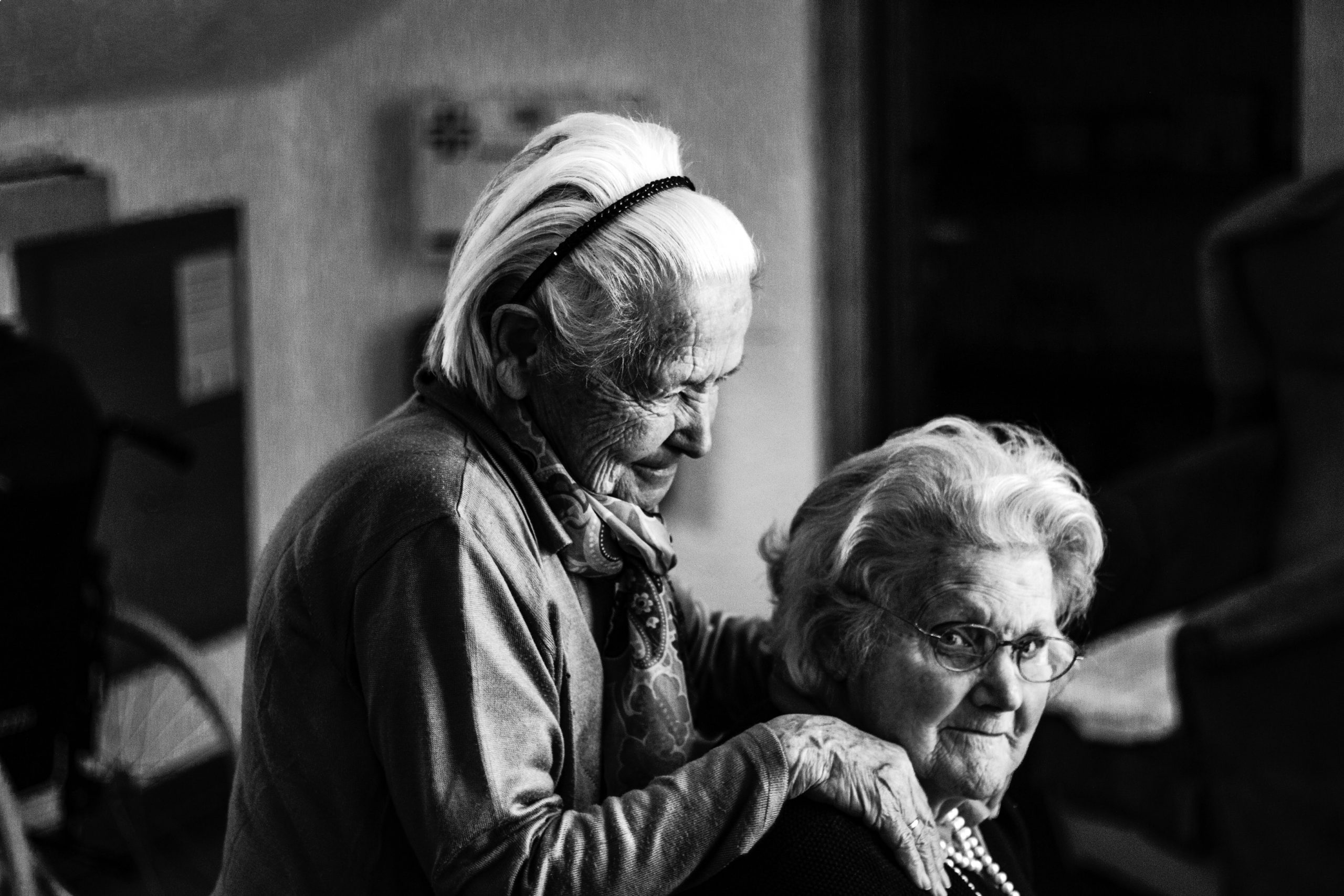
Plans and debates about the future of general practice have increasingly assumed the necessity of massively scaling-up conglomerates of practices and their dependence on IT, digitalisation and remote delivery. Yet much of great value is being sacrificed. A personal account by a ninety-two-year-old ex-GP tells us, with stark wisdom and suffering, what is being lost.
1. A systemic future
Amidst the lurching, gyrating confusions of our Covid pandemic there continues a flurried mixture – of debate and grand plans – of thought about the future of general practice.
The future scenarios almost invariably involve expanding the remoteness, flexibility and gigantism of the workforce. Primary Care Networks (PCNs) and Integrated Care Services (ICSs) both plan for much larger-scale amalgamated practices operating from conurbated centralised hubs and serving scores of thousands of patients. Such PCNs would, obviously, be staffed by very large teams that can then (hopefully) provide much greater staff flexibility and thus patient access across wider working hours. Expanding the use of remote consultations by the default ‘option’ of using phone and digital devices is a sine qua non of such plans.
From the control towers of government and management such changes make systemic sense: (theoretically) of gains in services’ consistency, agility, accessibility, transparency to management and overall value-for-money. Such assumptions, however mistaken, have been the hopes and justifications of the last thirty years of serial reforms, and they are set now to fuel the next post-Covid tranche of changes: those spurs to further gigantism (PCNs and ICSs and the like) and digitalisation (remote and automated management whenever possible).
Currently these reforms seem unstoppable and have become the lingua franca of those making our grand-design healthcare decisions. This unstoppability has thus led to a momentum that (practically) becomes more and more oblivious of what is left behind, jettisoned or even crushed into extinction.
What are the sacrificed and culled aspects of erstwhile practice that we have so destructively disregarded? They are the smallness of scale that is most suitable for personal continuity of care and thus skilled pastoral healthcare; the familiar and personal bonds that both derive from, and then create, our best personal understandings and synergies; the personal identifications that sustain our capacities to comfort and heal – not only our patients but our kindred colleagues; the working teams small enough to know and care about one another, and stable enough to imbue the work with a spirit of vocation rather than a regime of contractual compliance…
Teams small enough to know and care about one another, and stable enough to imbue the work with a spirit of vocation rather than a regime of contractual compliance…
2a. A personal past 1990-2021
The first of our serial neoliberal corporatising NHS reforms emerged a little over thirty years ago, in the later years of the Thatcher era. Then, for several years, I heard a new managerial lexicon ricocheting around me – purchaser-provider split, NHS Trusts, marketised-commissioning, service-user/provider, item of service tariff, and innumerable related phrases.2 Immersed in my inner-city small GP practice work, I was insouciantly naïve and hubristic in my disregard: these horizoned upheavals cannot affect me.
I think I first awakened – much belatedly I now ashamedly recognise – to the nature and seriousness of such changes with the first ratchetings of Quality Outcome Frameworks (QOFs). These heralded the vast wave of computerised observation, metrics and mass instruction-compliance that has continued, with increasing power, ever since.
…the vast wave of computerised observation, metrics and mass instruction-compliance…
Much of the rare but egregiously bad practice …. has been eliminated, but at the cost of the mass-asphyxiation of the best of our vocational esprit de corps and personal continuity of care.
The letter that follows4 is one of the most objectively undeniable yet subjectively affecting letters I have ever read. I received it in July 2021 from a 92-year-old retired GP. I note he is a Fellow of the Royal College, so would have become so in much more vocational and less careerist-managerial times. I consider this account so starkly and completely clear that I have kept my own postscript minimal.
I hope that others, though, will add their views to a very necessary debate.
2b. A personal past 2019-2021: Dr X’s letter
Dear Dr Zigmond,
I refer to your piece in the June BJGP. A breath of fresh air.
I am a 92yr old retired GP with a sick wife. Mary* suffered severe injuries, including head, in a RTA in the seventies. I can trace in retrospect a decline from then on gradually gathering pace until about a year ago when the pace accelerated til her death on her 90th birthday in May.
The local practice is a large monopoly. At no time was there any empathy, even as colleague to colleague, any attempt to get to know her, any comfort. When we asked to see the doctor to whom we were assigned the computer actually said “No – try again in a month”. We were directed to a registrar about to leave, a locum and a part timer. Knowing the difficulty of extracting a history from a computer or mildly demented patient I sent in advance half a side of A4 outlining the problem and history asking for it to be placed in the relevant pigeon hole. It was not delivered resulting in unsatisfactory consultations. We were granted a booking with a partner once but she would not see us on the day as she was late for a meeting. Our son, also a retired GP, attempting to record his concerns about his mother was told to mind his own business.
I sent a constructive note to the PPG [Patient Participation Group] chair who responded by admitting to be disturbed by what I said and then kicked it into the long grass.
I am not complaining. They don’t know what they do. I am told that practice is not like it was and I must move with the times. In the meantime they polish their halo over organising flu and Covid injections. But that is not doctoring, it is admin, which any regimental adjutant or public health person could do just as well. Telephone calls are answered by robots, menus, interminable music and triage by receptionist. Letters are ignored.
Osler, Cushing, McKenzie, Pickles, Stephens, Irvine and numerous others must be turning in their graves.
Sorry to be a boring rant. Nice to get it off my chest a little. Good to talk. Osler, Cushing, McKenzie, Pickles, Stephens, Irvine and numerous others must be turning in their graves.
What is the RCGP up to?
Regards
Dr X, FRCGP
I cannot think of, nor offer, any clearer evidence of the crucial importance of wider and tenacious debate.
I only hope we will now campaign for this with urgency and resolve.
Notes and references
1. Pereira Gray, D et al (2018). ‘Continuity of care with doctors – a matter of life and death? A systematic review of continuity of care and mortality’ BMJ Open, 8:eo21161. This large and thorough metastudy provides compelling and seminal evidence.
2. Zigmond, D (2015). If you want good personal healthcare see a vet. Industrialised humanity: Why and how should we care for one another? Glossary of terms, pp28-36. New Gnosis
3. Ibid, pp 297-312. Edward: shot in his own interest. Technototalitarianism and the fragility of the therapeutic dance
4. Dr X, (July 2021). Private correspondence.
* Editors note: Dr X had consented to be named and for his letter to be published, but his name has been witheld to prevent this article from becoming about individuals rather than systems. Dr X has written: ‘I do not personally wish to be a cause célèbre, but if publishing this letter helps tackle and prevent such problems I shall certainly welcome that.’ Dr X’s wife’s name has been changed.
Featured image by Fabrice Villard on Unsplash








